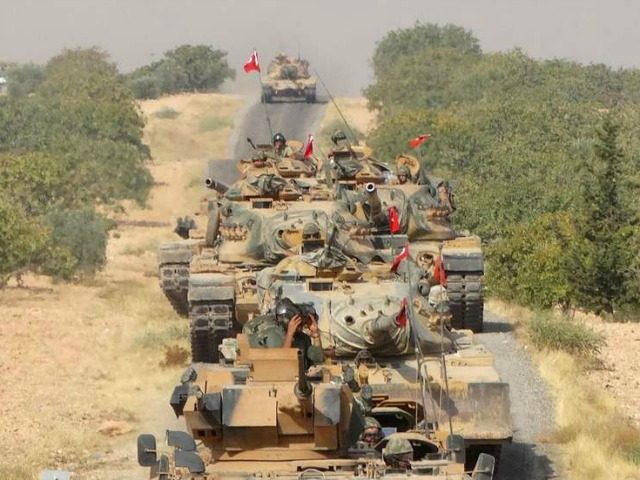The Turkish government announced earlier this week that it had deployed reconnaissance forces to the Idlib province of Syria as an initial step in establishing one of four future “deconfliction zones.” The move is part of a plan designed by regional powers Turkey, Russia, and Iran in May to help mitigate the conflict and maintain each country’s national interest inside Syria.
The intelligence unit will assess the conflict and prepare for the arrival of Turkish combat troops. Ankara has decided to partner with the Free Syrian Army (FSA), a Sunni rebel group, providing “assistance to rebels it has long backed.” Meanwhile, Russia will continue to fly missions over Idlib, and Iranian-backed forces will move from the south, in an attempt to reduce fighting between rebels and “pro-government forces in the area.” All sides appeared to reserve the right to engage with al-Qaeda-linked jihadists groups, but details regarding how these the different actors would coordinate their operations were not made public.
While Turkey may assert that it’s deeper involvement in the conflict is about stopping groups such as ISIS and al-Qaeda affiliates, in fact it is designed to halt the Kurdish expansion to Idlib after the fighting in Raqqa has ceased, according to Ahmed al-Sultan, deputy commander of the U.S.-backed Syrian Democratic Forces (SDF). Ankara has used the claim of fighting terrorists to bomb Kurdish fighters in the past, raising tensions with the U.S., which supports the SDF. Washington has embedded special forces with SDF units and views the umbrella group as the most effective way of fighting Islamic State.
With a vacuum of American leadership on the diplomatic front, U.S. allies have taken to fighting one another and Iranian influence has continued to grow. Hezbollah, an Iranian-backed Shiite terror group, has exploited the chaos to receive shipments of advanced weaponry, gain military experience, and consolidate control over territory. Meanwhile, Turkey, a NATO member, has begun bilateral drills with the Iranian military as a show of force to Kurdish leaders in Iraq.
President Donald Trump has insisted that a pillar of his Syria policy is to keep Iran from continuing to expand its power and use the country as a launching pad for terrorism. However, the deal to divide Syria up into zones of control without any U.S. engagement will weaken America’s standing abroad and the security of its allies in the region. Particularly Israel.






